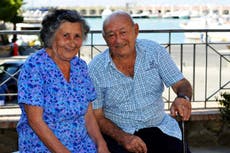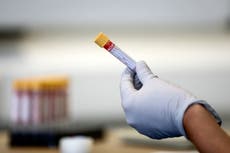Reversing human age may be ‘biologically impossible’, study suggests
But ‘not all hope is lost’, scientists say
The biological process behind ageing can potentially be stopped but not fully reversed, suggests new research.
Researchers, including those from Gero, a biotechnology firm based in Singapore, used artificial intelligence and machine learning tools to assess if it is possible to reverse ageing in humans.
The yet-to-be peer-reviewed research, posted as a preprint in BioRxiv, assessed a key component in aging in humans called “resilience”.
Scientists particularly assessed a factor called thermodynamic biological age (tBA) that sheds light on the biological information lost in an organism with age.
According to researchers, tBA tracks the extent of disorder produced in an organism as it ages.
They said that as tBA increases with age, it could lead to lower resilience in the person, driving an “exponential acceleration” of chronic disease incidence and death risks.
“According to our measurements, the number of people demonstrating the loss of resilience increases in the population exponentially and doubles every eight years, exactly as fast as the mortality rate doubles,” Peter Fedichev, a co-author of the study and Chief of Gero, said in a newsletter.
This shift is irreversible, scientists said, adding that it could set severe constraints on age reversal possibilities.
Studies have shown that ageing is a complex process that presents itself across different levels in an organism.
The process of ageing leads to an exponential acceleration of the incidence of chronic diseases and ultimately the death of organisms.
Researchers over the years have developed several biological ageing models that can assess biomedical data such as DNA modifications individuals to predict their biological age and risk of death.
However, the exact link between these factors and biological ageing is not completely understood.
Scientists said the loss of resiliency can be better understood as a process driven by an irreversible thermodynamic change.
However, this thermodynamic nature of ageing sets severe constraints on the possibilities of age reversal.
While recent studies have demonstrated potential age reversal in mice with hopes the process could be extended to humans, Dr Fedichev said the case may be different for humans.
But “not all hope is lost,” scientists said.
There could be a way to “cool down” an organism, control the chaos in the molecular interactions in its cells and reduce the rate of ageing.
Join our commenting forum
Join thought-provoking conversations, follow other Independent readers and see their replies
Comments


Bookmark popover
Removed from bookmarks